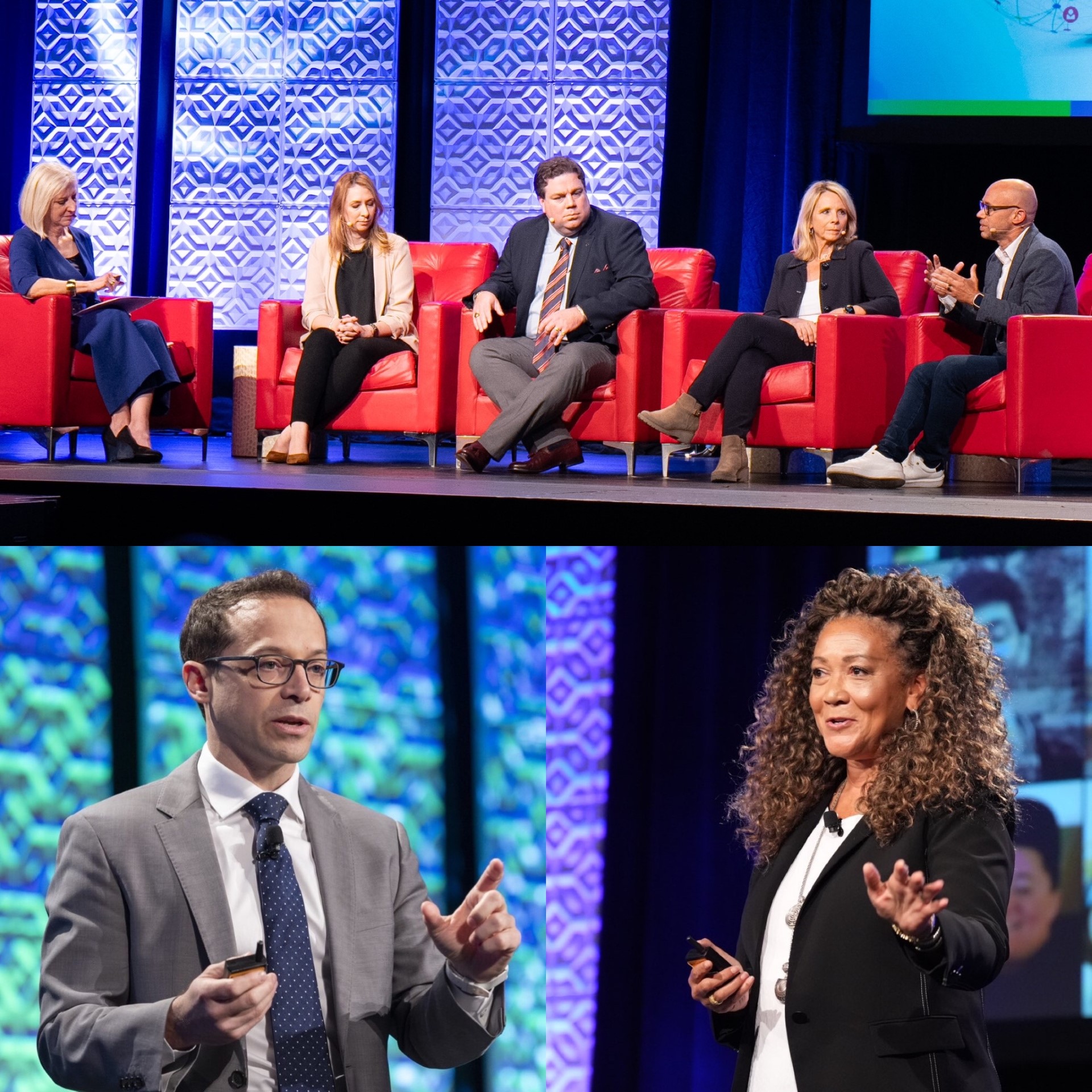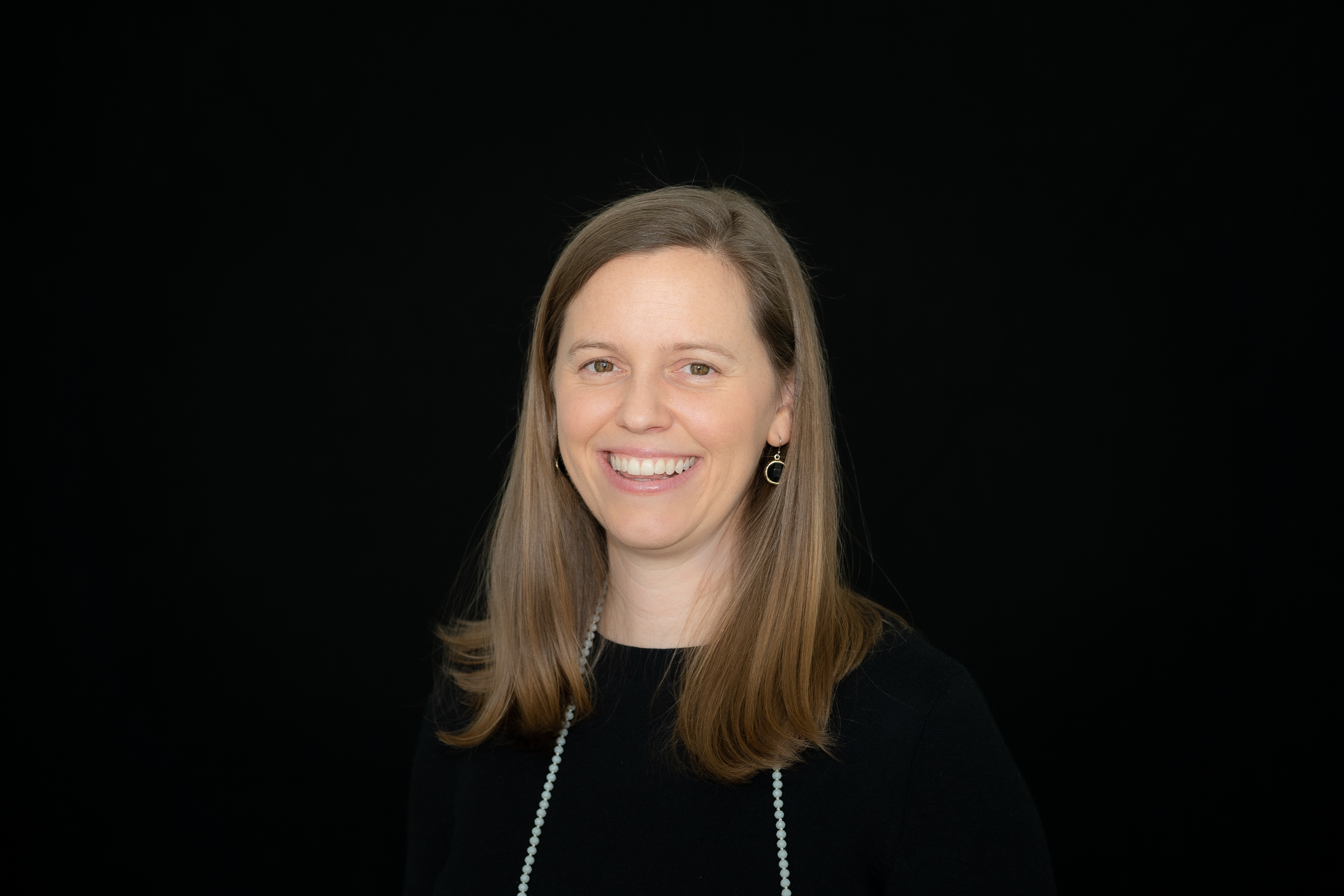ICON 2023 Recap: Insights From David Epstein, Michele Norris and an AI Panel Discussion
By Amy Jacques
November-December 2023
David Epstein on the Value of Being a Generalist
Journalist David Epstein, The New York Times bestselling author, discussed the value of having a breadth of experiences rather than specialization as he presented the keynote on Oct. 15 at the opening General Session.
Epstein presented data, research and stories from numerous professional athletes, outlining their career scenarios and paths to success. From Roger Federer to grand masters of chess, Army recruits and even the creator of binary code and Nintendo, he tracked the development of these performers over their lives.
Epstein referenced the “10,000-hours story, or the idea that the only route to exceptional performance is 10,000 hours of so-called deliberate practice,” but clarified that it wasn’t always a clear-cut path to success for these people who excelled in their field.
Delving into these developmental backgrounds, he noted that many of these “domains that we associate with early obligatory specialization” were deemed average at first and that these people dabbled in other things before specializing.
Traditionally, Epstein said that people trained for their specific role, there was less change with their day-to-day work, and they solved the same problems the same way, often without much opportunity for career movement. But now that’s changing.
“Even when you’ve figured out the right general place to be, there are still advantages to keeping yourself broad over the course of your career,” he said. “And this will be increasingly true, especially as PR and advertising and marketing and social media and all of these things are converging.”
There are many benefits of working in many different genres that can often lead to innovation, Epstein said. “It’s difficult to replace the skills of those broad individuals” — like many of the professional athletes he mentioned — “who often maybe looked like they were behind early in their career until they really weren’t.”
Michele Norris on Inspiring Unity and Inclusion
Michele Norris, an award-winning journalist and author, spoke on race, cultural identity and inclusion during the Oct. 16 General Session.
“I feel like we are fellow journeymen because I am a storyteller and story collector just like you,” she told attendees, noting that her focus was on the importance of gathering people’s stories through the lens of The Race Card Project.
The Washington Post Opinions columnist and former host of NPR’s “All Things Considered” started The Race Card Project in 2010 as a way to make it easier for people to engage in conversation about a topic that was often complex and difficult.
The premise was to write a response to this prompt on a supplied postcard and mail it back: “Race. Your Story. Six Words. Please Send.” The project is now also online and has vast digital archives. Over 500,000 responses have been recorded to date from every U.S. state and 100 countries as people share their experiences, triumphs, sorrows, memories or anthems — thoughts about race, cultural identity and an evolving America expressed in just six words. A book based on the project is out in January.
Norris chose six words because it’s approachable and you can easily tell a story with six words, she said.
She offered that this type of brevity is helpful for any complicated narrative: “If you have something difficult to write, if you can bring it down to one sentence — six words — you can tackle it.”
Norris concluded her talk by urging the audience to actively embrace one another’s perspectives, fostering genuine understanding through attentive listening and the exploration of differing points of view.
“We are changed by each encounter we have and each new person we meet,” she said. “Do you have it in you to be that one person who can create a sense of belonging for someone — to make them feel seen, heard and valued?”
Panelists Talk AI in Communications
For the closing General Session on Oct. 17, PRSA presented an AI Keynote Salon. Focusing on “Today’s Tools, Future Projections and the Ethical Frontier,” PRSA CEO Linda Thomas Brooks moderated the panel, which featured: Carmen San Segundo, global communications director of corporate social responsibility and sustainability, IBM; Aaron Kwittken, CEO, Stagwell Marketing Cloud, Comms Tech Unit; Cayce Myers, APR, Ph.D., professor and director of graduate studies, Virginia Tech; and Michelle Olson, APR, managing partner, Lambert.
In an era where technology is rapidly changing, topics ranged from AI in today’s PR landscape to the future of AI in public relations, as well as navigating the ethical maze and legal insights on AI as it relates to communications.
Here are a few takeaways from this wide-ranging conversation:
• Aaron Kwittken: We can’t talk about AI without talking about cultural shifts. We often focus on people and process, but we need to add technology to that, too. Use multiple platforms in order to advance all of this rather than focusing on only one.
• Cayce Myers: There’s also a human element to AI. You have to bring something to the table, too. AI may not be something that’s going to totally replace communicators or communications processes — you will still have to get your message out.
• Carmen San Segundo: Long-term is hard to see regarding AI. Managers that don’t use AI will be replaced by the ones who do use AI… All of us will have to be exposed to a more collaborative environment.
• Michelle Olson: Ask yourself: ‘Am I transparent? Am I truthful? Am I honest?’ We are also telling ChatGPT to cite its findings for fact-checking purposes [at our agency]. Transparency and ethics are very important… I think we need to assume everyone here is using AI for good.



